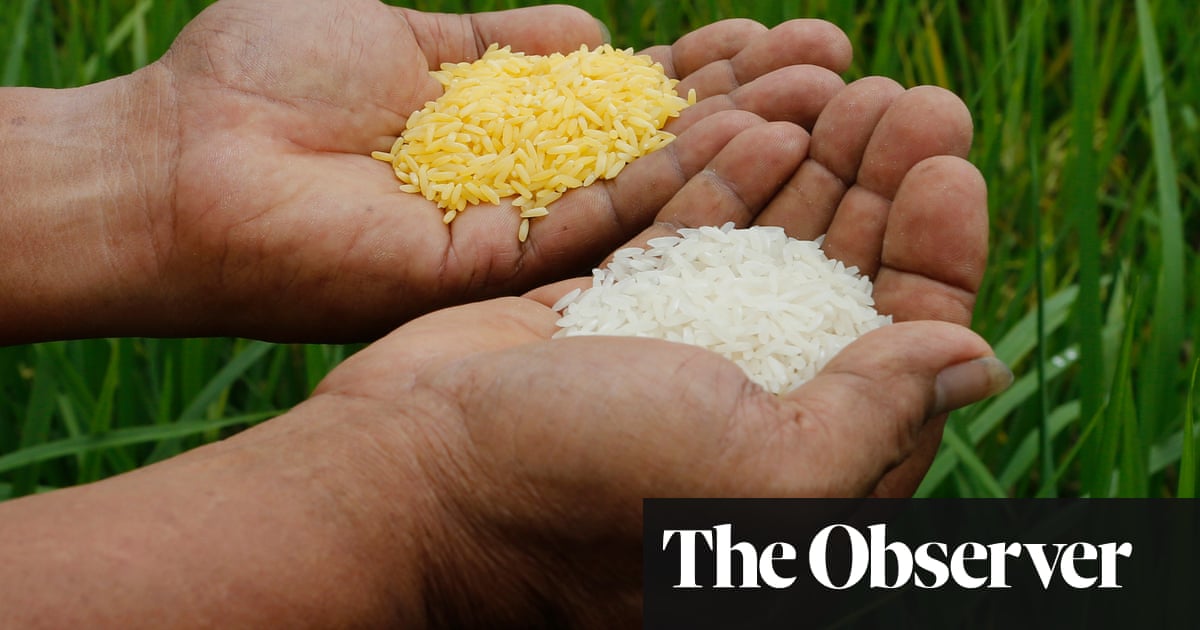Thousands of children could die after court backs campaign group over GM crop in Philippines, scientists warn
Scientists have warned that a court decision to block the growing of the genetically modified (GM) crop Golden Rice in the Philippines could have catastrophic consequences. Tens of thousands of children could die in the wake of the ruling, they argue.
The Philippines had become the first country – in 2021 – to approve the commercial cultivation of Golden Rice, which was developed to combat vitamin A deficiency, a major cause of disability and death among children in many parts of the world.
But campaigns by Greenpeace and local farmers last month persuaded the country’s court of appeal to overturn that approval and to revoke this. The groups had argued that Golden Rice had not been shown to be safe and the claim was backed by the court, a decision that was hailed as “a monumental win” by Greenpeace.
Many scientists, however, say there is no evidence that Golden Rice is in any way dangerous. More to the point, they argue that it is a lifesaver.



It all depends what your definition of genetic modification is.
My opinion isn’t exactly a fringe theory.
No it doesn’t.
It’s a completely disingenuous argument and a false equivalency. We know that we are referring to GMO vs selective breeding. These are completely different mechanisms and in the latter case we understand the consequences and implications because humans have been doing it for millennia. In the former case we have not been doing it very long at all and do not yet fully understand the consequences and implications. I’m not saying that makes it inherently wrong, but it is a vast area of unknown ramifications. And given human’s already long history of fucking with nature and finding out my money is on those ramifications being less than ideal.
It is selecting genes through breeding or doing the same thing in a laboratory.
It is a completely different mechanism. The best way to simply describe this is perhaps to say that in selective breeding you are allowing random mutations to happen naturally - IOW allowing the plant to naturally “adapt” to it’s environment. This is crucially different in that you are not going in and saying “oh these genes are the ones we want let’s only bring those out” but rather “these are the characteristics I want, let’s select the organisms that display those”.
To put it another way: in selective breeding you are selecting for a collection of characteristics. A great example is saving seed from a crop you have grown. Those seeds will always do better in your specific environment than commercially purchased seeds of the exact same cultivar. Why? Because there are small random mutations across a number of genes that are better adapted to your specific environment to produce the characteristics you want. Those genes are often not actually understood nor is the effect of different combinations of genes. By working backward from exhibited characteristics you are working from known successful combinations.
It’s like you’re trying to explain to me muscle mass growth from going to the gym vs hard work as a farmer.
It’s the same outcome and you’re not getting that.
I just explained how it’s not and you’re not getting that.
Here, educate yourself: http://www.differencebetween.net/science/difference-between-gmo-and-selective-breeding/
Here’s one that proves my point.
It really doesn’t though. If you point is… um… what exactly? That somehow the end result is the same? LOL. Only if you squint real hard and pretend to misunderstand words.
Technically, yes. That’s true. Through DIFFERENT mechanisms.
But what do you expect when it’s brought to you by Cargill, Bayer, Syngenta, Nutrien, BASF… among others.
I think this conversation is over and it could have always been this simple but you just wanted to argue and get pedantic for whatever reason.